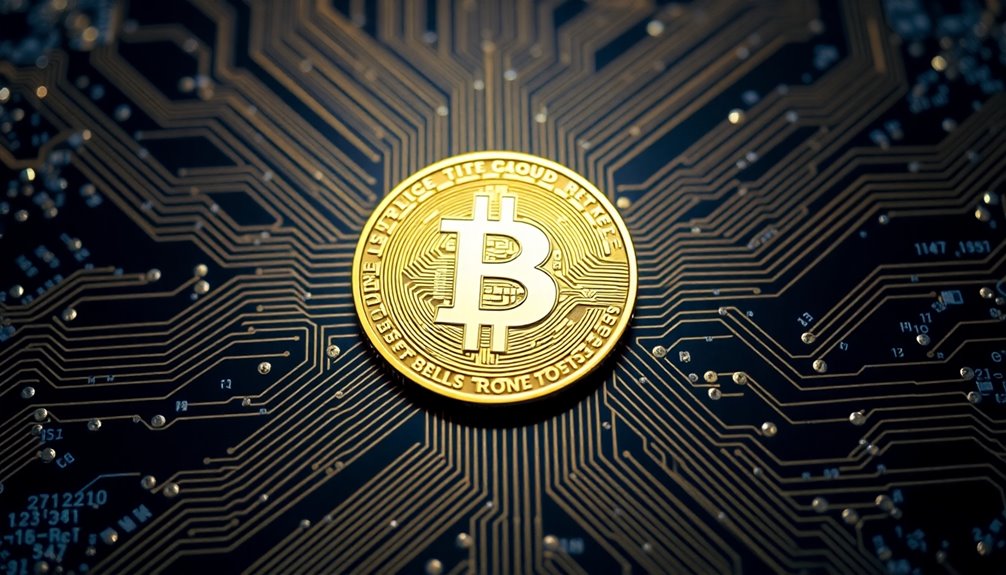Bitcoin’s “digital gold” moniker stems from its unique properties. First, its fixed supply and predictable mining schedule create scarcity. Second, its decentralized network and cryptographic security make transactions secure. Third, its portability and global accessibility allow instant cross-border transfers. Fourth, its divisibility into tiny units called satoshis enables micropayments. Finally, Bitcoin’s deflationary nature positions it as an inflation hedge and wealth preservation tool. Combined, these attributes make Bitcoin an attractive alternative to traditional stores of value. If you’re intrigued, delving deeper will reveal Bitcoin’s potential to revolutionize money and finance. Moreover, as more individuals and institutions recognize these benefits, Bitcoin’s reputation continues to grow, positioning it as a serious contender in the financial landscape. Advocates often refer to bitcoin as modernday gold, emphasizing its role as a safe haven during times of economic uncertainty. As the world increasingly turns to digital solutions, Bitcoin stands poised to reshape our understanding of value and investment in unprecedented ways.
Key Takeaways
- Bitcoin's fixed and limited supply, just like gold, makes it a scarce digital asset that is resistant to inflation.
- The decentralized and secure nature of Bitcoin's blockchain technology ensures transaction integrity and reduces the risk of a single point of failure.
- Bitcoin's portability and global accessibility allow for instant cross-border transactions, eliminating geographical restrictions and reducing transfer costs compared to traditional assets.
- The divisibility of Bitcoin into smaller units (satoshis) enables microtransactions and flexible usage, making it suitable for a wide range of financial applications.
- Bitcoin's deflationary nature and historical performance as a store of value during economic uncertainty position it as a digital equivalent to the traditional inflation-hedging asset, gold.
Scarcity and Predictable Supply
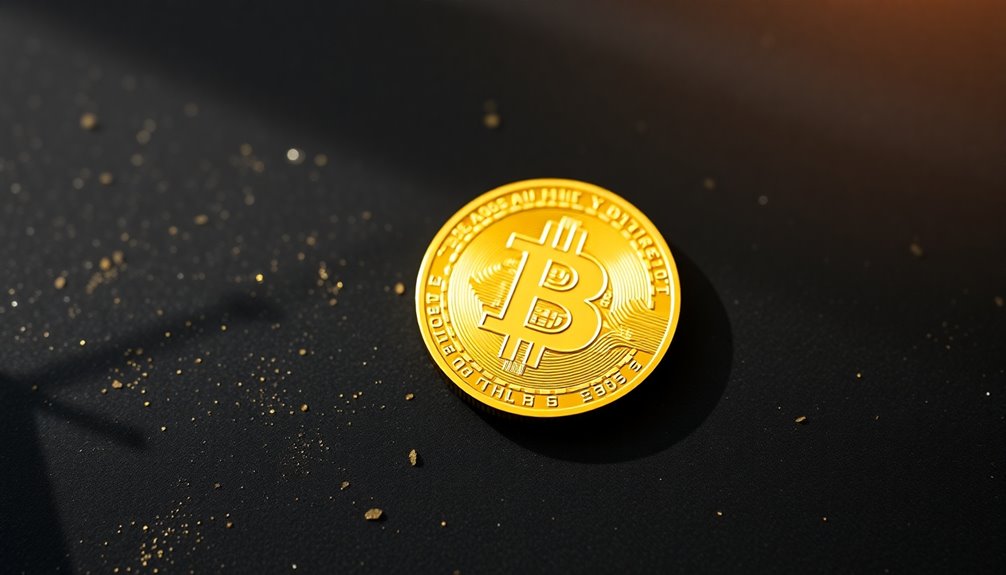
The fixed supply of Bitcoin is a key feature that creates scarcity and prevents inflation. There's a hard cap of 21 million Bitcoin, with around 19.5 million already mined. This means only 1.5 million Bitcoin are left to be mined, which will take until around 2140 due to the halving mechanism. The halving event happens every four years, reducing the block reward by half, creating an ever-decreasing flow of new Bitcoin entering the market. This predictable supply schedule distinguishes Bitcoin from fiat currencies, which can be arbitrarily inflated. Bitcoin's annualized inflation rate has dropped to under 1.8% in 2024, approaching 0% by 2140. Bitcoin's high stock-to-flow ratio makes it challenging to meet demand with new supply, contributing to its performance as an inflation hedge. The transparent and predictable issuance of Bitcoin protects its value, making it a reliable store of value in the digital domain.
Decentralized and Secure Transactions
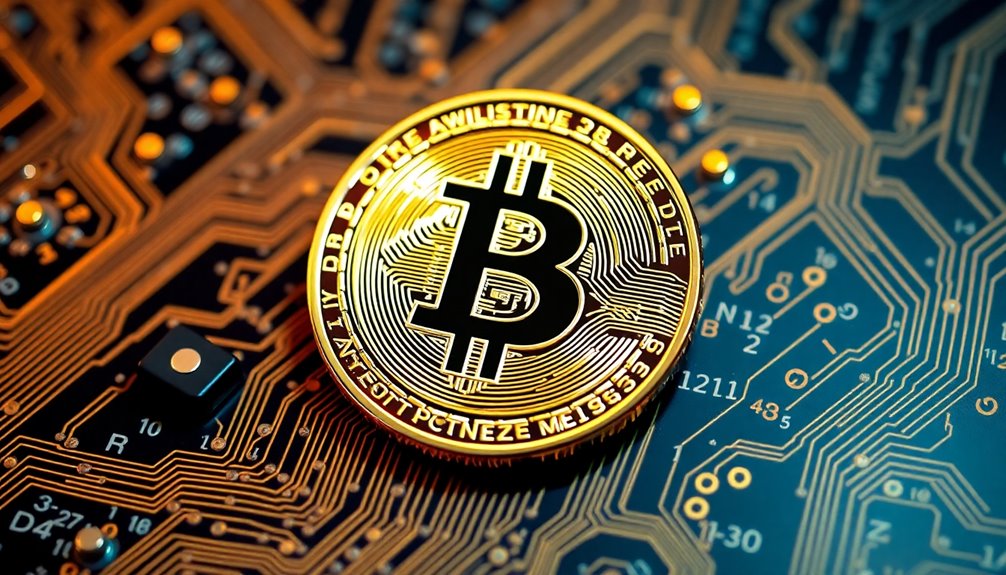
Underpinning Bitcoin's security and integrity is its decentralized network structure. Unlike traditional financial systems, Bitcoin operates on a peer-to-peer network with no central authority. A vast number of computers (nodes) worldwide maintain the network, each holding a copy of the entire transaction history. This distribution guarantees data integrity, as no single node can alter the records without being detected by the others. Decentralization ensures that there is no single point of failure, making the network more resilient against attacks.
Decentralization | Consensus Mechanisms | Cryptographic Security
— | — | —
No central oversight | Proof of Work (PoW) | Public-private key cryptography
Distributed nodes | Validation process | Digital signatures
Redundancy and fidelity | Prevents malicious activities | Immutable transactions
The consensus mechanism, Proof of Work (PoW), validates transactions and creates new blocks, preventing double-spending and other malicious activities. In addition, Bitcoin's cryptographic security, including public-private key cryptography and digital signatures, guarantees the authenticity and integrity of transactions, even off-chain. With these robust features, Bitcoin stands as a reliable and secure digital currency.
Portability and Global Accessibility
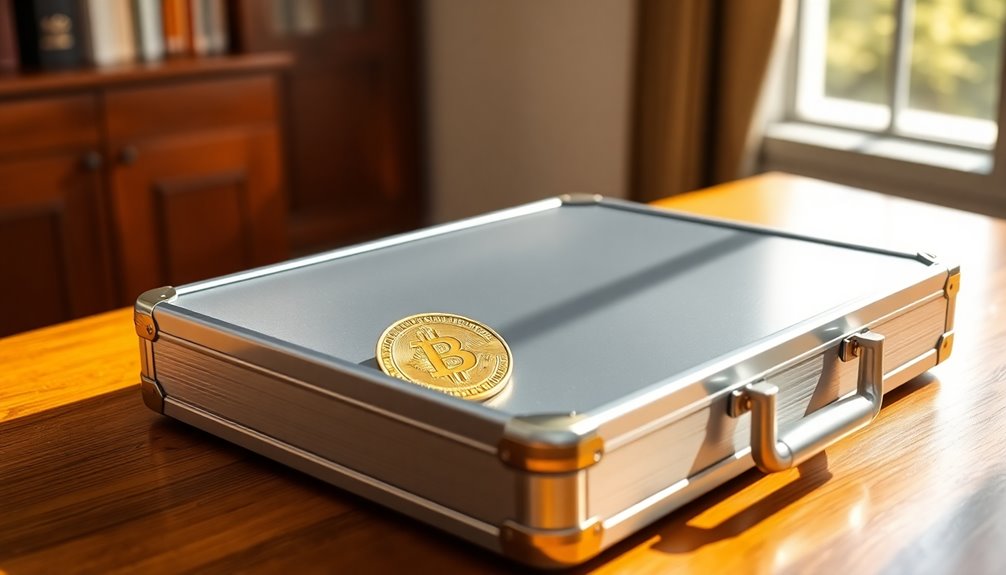
With Bitcoin, you can enjoy the portability and global accessibility of a digital currency. Transferring Bitcoin across borders is a breeze – the transactions are completed instantly without geographical restrictions. This global network of nodes verifies the transfers, providing faster transaction times than traditional assets. Furthermore, you can store your Bitcoin in virtual wallets or hardware devices, eliminating the need for physical storage space. No risk of physical damage or loss, and you can access your funds from various digital devices. Additionally, security risks associated with online transactions are mitigated through the use of advanced cryptographic techniques. Bitcoin also offers a level of transparency and decentralization that traditional financial systems often lack, allowing users to maintain greater control over their funds. While it mitigates certain risks of digital payments through blockchain technology, it’s important to remain cautious about safeguarding private keys to prevent unauthorized access. As adoption grows, the evolving ecosystem continues to reinforce trust and innovation in the world of decentralized finance.
The cost-effectiveness of Bitcoin is also a significant advantage. Transferring Bitcoin is cheaper than moving gold, and you avoid the expenses of storage facilities and security measures. The efficient use of resources without physical handling minimizes the risk of theft or loss during transit. Bitcoin's decentralized nature provides an alternative to traditional banking systems, allowing for seamless cross-border investments and transactions. Finally, Bitcoin's global accessibility allows you to access and trade it from anywhere with an internet connection, with real-time price updates and market data available worldwide, facilitating seamless cross-border investments and transactions.
Divisibility and Microtransactions
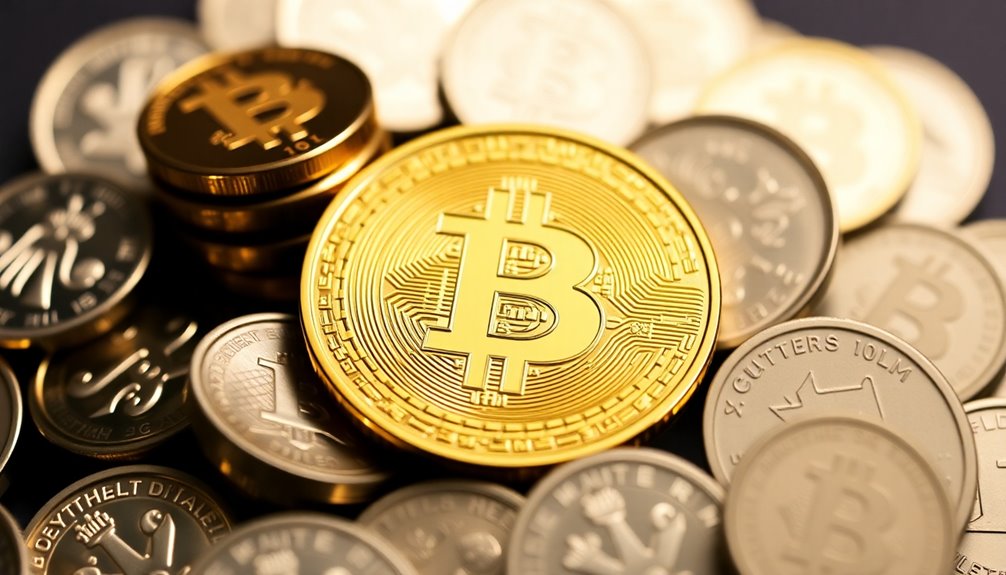
One of Bitcoin's key features is its divisibility, which allows you to conduct transactions of all sizes. Bitcoin is divisible into 100,000,000 satoshis (sats), with each sat representing 0.00000001 BTC. This granular divisibility is akin to how a dollar is divided into 100 cents, providing greater flexibility than traditional currencies.
Satoshis allow for microtransactions, such as tipping content creators or buying small digital goods. This is particularly useful for high-frequency, low-value transactions, even as Bitcoin prices rise. The divisibility of Bitcoin also facilitates the development of technologies like the Lightning Network, enabling fast, low-fee transactions. The fixed supply of 21 million Bitcoin ensures the continued importance of satoshi divisibility.
Transaction fees are often displayed in satoshis per vByte, making it a standard unit for many Bitcoin prices. This guarantees Bitcoin remains practical and inclusive as a global currency, supporting the expression of prices in satoshis to manage transactions at high BTC prices. The divisibility of Bitcoin is an essential aspect that underpins its real-world usability.
Inflation Hedging and Wealth Preservation
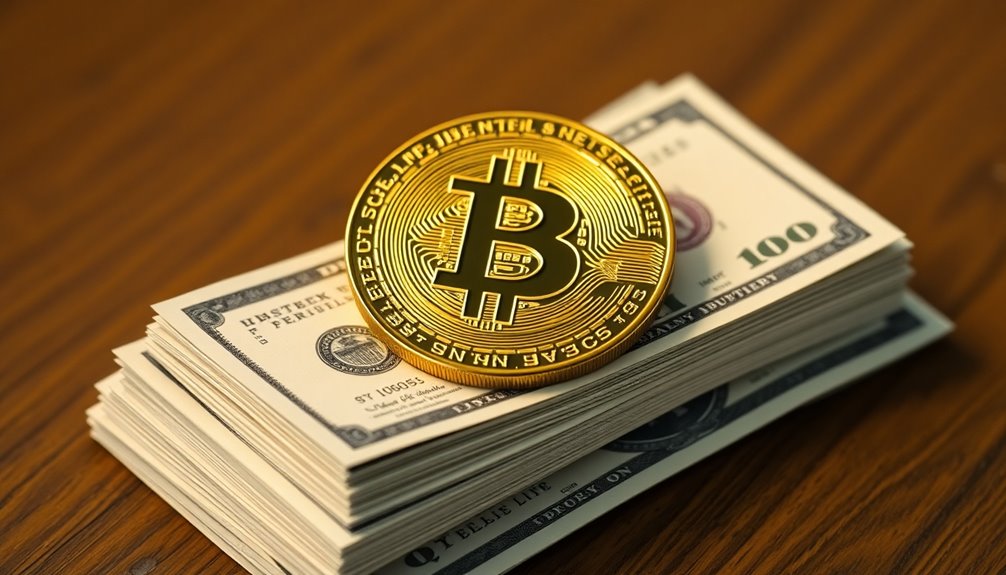
Bitcoin's divisibility and support for microtransactions are just the beginning. Bitcoin's inherent deflationary nature and fixed supply make it an effective hedge against inflation. With a hard cap of 21 million coins, Bitcoin is immune to government manipulation of the money supply. The decentralized network guarantees no single authority can impact Bitcoin's value through inflationary policies. Bitcoin's historical performance has shown it often increases in value during periods of economic uncertainty, making it a safe haven for investors seeking to preserve their wealth.
Additionally, Bitcoin's digital nature guarantees it doesn't degrade over time, much like gold. Transactions on the Bitcoin network are secured by blockchain technology, making counterfeiting nearly impossible. The global accessibility of Bitcoin further enhances its role as a store of value, as it can be easily transferred across borders. Like gold, Bitcoin is valued for its fundamental properties, including its cryptographic technology and decentralization, which contribute to its long-term stability and growth potential.
Frequently Asked Questions
What Are the Risks Associated With Investing in Bitcoin?
Investing in Bitcoin carries significant risks. Its price can fluctuate sharply, with nearly $1 trillion wiped off the crypto market in a short period. You could lose access to your Bitcoin if you lose your account passwords or digital keys. Hacking and fraud pose substantial risks, and unregulated platforms lack key investor protections. Regulatory actions and environmental concerns also threaten Bitcoin's stability. These risks make investing in Bitcoin a highly speculative endeavor.
How Does Bitcoin's Energy Consumption Compare to Traditional Financial Systems?
You may be surprised to learn that Bitcoin's energy consumption is actually lower than that of traditional financial systems. While Bitcoin uses around 167.14 TWh annually, global banking consumes a staggering 258.85 TWh. Furthermore, over 50% of Bitcoin's energy comes from renewable sources, making it a more sustainable option. Though energy usage is a concern, Bitcoin's decentralized design makes it more efficient than the traditional banking industry.
What Are the Tax Implications of Buying, Selling, and Holding Bitcoin?
When you buy Bitcoin, there's no tax. But you'll owe taxes when you sell it, trade it, or use it to buy goods and services. The gain is taxed as capital gains, and the rate depends on how long you held it. Losses can offset other gains. Holding Bitcoin and transferring it between your wallets aren't taxable events, but mining and staking rewards are taxed as income.
How Can I Store and Secure My Bitcoin Safely?
To store and secure your Bitcoin safely, consider using hardware wallets like Ledger or Trezor for offline storage. You can also use software wallets on your computer or mobile device, but be sure to keep your private keys secure and enable two-factor authentication. Backup your wallet data regularly and diversify your holdings across multiple storage methods. Stay vigilant against phishing scams, and consult legal experts if you have any concerns about the compliance of your Bitcoin activities.
What Are the Regulatory Challenges Facing the Bitcoin Ecosystem?
You're drowning in a sea of regulatory chaos with Bitcoin! Different authorities classify it as a commodity, property, or something new entirely. It's the Wild West, with federal and state agencies fighting over jurisdiction. And good luck getting consistent consumer protections – some places require stringent rules, while others let companies run wild. Without global coordination, you're stuck traversing this regulatory minefield, hoping to avoid the enforcement sharks circling overhead. It's enough to make your head spin!
